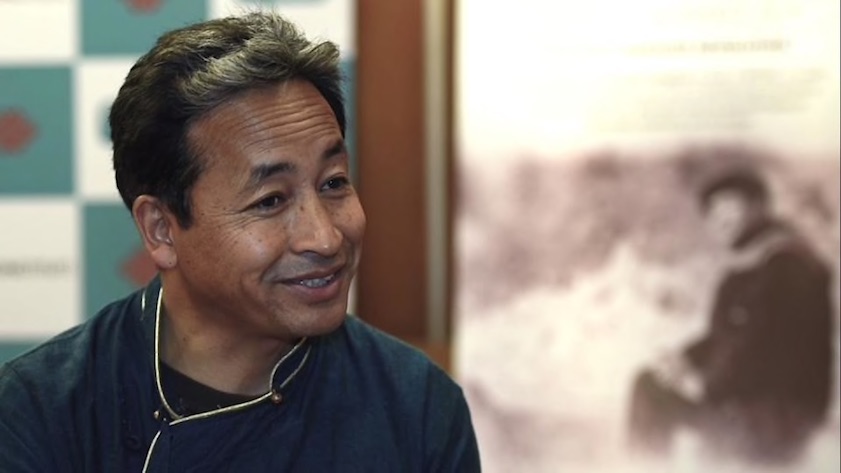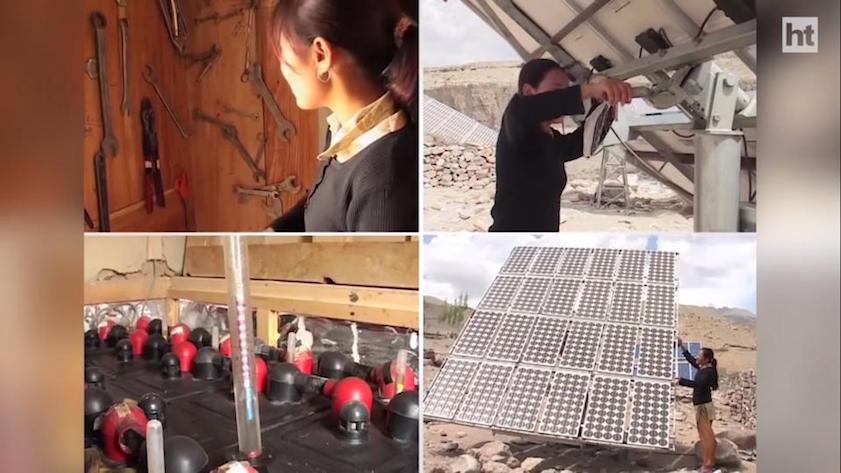Sonam Wangchuk
This is a collection of articles archived for the excellence of their content. |
A profile
Rolex Awards for Enterprise: Rolex Awards Speaking Minds Satarupa Paul, Engineer-turned-educationist Sonam Wangchuk is changing the education landscape of Ladakh, one failed student at a time, Dec 08, 2016: The Hindustan Times

From: Satarupa Paul, Engineer-turned-educationist Sonam Wangchuk is changing the education landscape of Ladakh, one failed student at a time, Dec 08, 2016: The Hindustan Times

From: Satarupa Paul, Engineer-turned-educationist Sonam Wangchuk is changing the education landscape of Ladakh, one failed student at a time, Dec 08, 2016: The Hindustan Times
Sonam Wangchuk born, near Alchi, in the Trans Himalayan region of Ladakh, India is an engineer, innovator, and an education reformist. He is the Founding Director of the Students’ Educational and Cultural Movement of Ladakh (SECMOL) which was founded in 1988 by a group of students who had been in his own words, the ‘victims’ of an alien education system foisted on Ladakh. Sonam spent the first seven years of his childhood with his mother in a remote Ladakhi village, climbing trees, helping her with housework, and learning to read and write Ladakhi. He feels that the opportunity to learn Ladakhi was one of the best things she provided, particularly since the schools he attended later did not teach the language.
In 1988, a year after graduating as an engineer, Sonam, with his brother and five peers, formed the Students’ Educational and Cultural Movement of Ladakh (SECMOL). Their first fundraising effort, a Ladakhi cultural show, proved to be a huge success. Until 1990 Sonam coached school students and offered vocational training courses to dropouts. Sonam had to get to the root of the problem, and the solution to that lay in localizing the system of elementary education. He did not think of building an alternate system because it would have resulted in a waste of resources. Besides, most of the children in Ladakh attended government-run schools.
In 1991 Sonam started his first intervention in the government school of Saspol with permission from the chief education officer of the region. The success of the model created popular demand for his training, and 33 villages came forward to adopt the model before the newly formed Hill Council adopted it as official policy. When he saw people struggling to meet their basic water requirements in Ladakh, he came up with a solution of creating vertical ice stupas to store water for a longer time. The average stupa is 35 meters to 40 meters high and can store upto 16,000 cubic litres of water which is enough to irrigate 10 hectares of land. Read how Wangchuk plans to create 80-90 such stupas to solve all of Ladakh’s water troubles.
He became fascinated by mirrors and lenses after reading about them in his school textbooks, and then took a solar-energy study option during his engineering studies – which, in turn, triggered his interest in renewable energy. “And from there, I was completely into environmental issues,” he recalls. He later did a two-year specialization in Grenoble, France, studying earthen architecture.
Much of his career has focused on developing solutions to problems encountered by communities living at high altitudes such as education, climate-responsive housing and now access to water.
His journey into education reform began when he had to find a way to finance his engineering course and started teaching during his college holidays. “I started thinking about things that could make a real impact on people’s lives, mainly through meaningful education,” he says. “All these young Ladakhis – 95 per cent of them – were failing in the educational system owing mainly to their being a cultural and linguistic minority.”
In 1988, he co-founded SECMOL, the Students’ Educational and Cultural Movement of Ladakh, and slowly reduced the failure rate to 25 per cent; and then, in 1994, he led the establishment of a solar-powered, student-built, student-run alternative school where teenagers who still fail in the conventional education system get a second chance. It was at this school that the ice stupa and many such innovations were born.
Wangchuk’s interest in educational reform has resulted in his appointment to the Jammu and Kashmir State Education Advisory Committee, the Indian government’s National Governing Council for Elementary Education and several other similar assignments across South Asia.
See also
Sonam Wangchuk